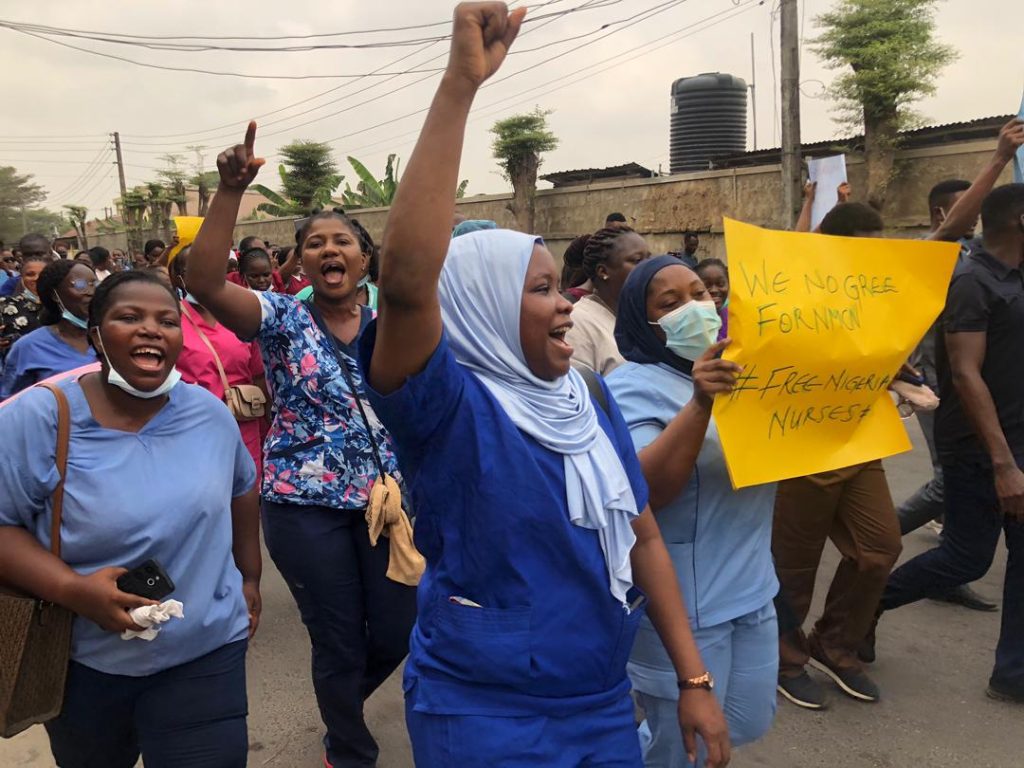In a move that has stirred controversy within the nursing and midwifery community in Nigeria, the Nursing and Midwifery Council of Nigeria (NMCN) recently issued a circular revising guidelines for requesting verification of certificates for nurses and midwives.
The circular signed by the Registrar of the council, Dr Faruk Abubakar, read in part, “A non-refundable fee per application shall be paid for verification to foreign boards of nursing as specified on the portal. This shall cover the cost of courier services to the applicant’s institution(s) of training, place of work, and foreign board.
“Eligible applicants must have a minimum of two years post qualification experience from the date of issuance of the permanent practicing license. Any application with a provisional licence shall be rejected outright.
This decision made apparent on February 7, 2024, has raised concerns among professionals and stakeholders alike. While the NMCN’s intentions may have been to uphold standards, the practical implications of this policy demand a critical reevaluation, as nurses claim that the new policy restricts them from accessing international opportunities.
The NMCN serves as the paramount regulatory body entrusted with the responsibility of ensuring the delivery of safe and effective nursing and midwifery care in Nigeria. Central to its mandate is the regulation of standards in education and practice, aimed at meeting the evolving health needs of society. However, the recent circular appears to deviate from this overarching objective, instead introducing barriers that hinder professional growth and global opportunities for nurses and midwives.
In 2024, the healthcare sector will be marked by mobility and globalization, as were in previous years. Nurses and midwives are increasingly seeking opportunities beyond borders, driven by factors such as professional development, better working conditions, and access to advanced technologies. In this context, the NMCN’s decision to tighten certificate verification processes runs counter to the prevailing trends. Rather than facilitating the advancement of its professionals, it inadvertently restricts their mobility and prospects for professional development.
Moreover, in an era where nations are interconnected and where collaborative efforts are paramount, fostering an environment conducive to international cooperation is imperative. Nurses and midwives play a pivotal role in global health initiatives, contributing their expertise to address pressing challenges such as infectious diseases, maternal mortality, and non-communicable diseases. Restricting their mobility through cumbersome verification processes hampers the collective efforts to improve healthcare outcomes globally.
Instead of erecting barriers, the NMCN should prioritise policies that empower nurses and midwives, thereby strengthening the healthcare system domestically and enhancing Nigeria’s standing in the global arena. This entails embracing a forward-thinking approach that aligns with the realities of the 21st-century healthcare landscape.
Furthermore, while global exposure is crucial, Nigeria must not neglect its domestic healthcare needs. Nigeria faces significant health challenges, including shortages of healthcare professionals, inadequate infrastructure, and disparities in access to care. Rather than burdening nurses and midwives with cumbersome verification processes, the NMCN should prioritize addressing these pressing issues. By streamlining administrative procedures, the council can redirect its efforts toward strengthening the healthcare workforce within the country.
The NMCN’s recent decision to revise guidelines for certificate verification for nurses and midwives is misguided and counterproductive. Instead of impeding professional mobility, the council should adopt policies that empower healthcare professionals and facilitate their access to global opportunities. By prioritising the needs of nurses and midwives, and investing in their development, Nigeria can build a robust healthcare system that meets the evolving needs of its population while also contributing to global health efforts.
It’s time for the NMCN to reverse its stance and embrace a vision that fosters growth, collaboration, and excellence in nursing and midwifery care.
